Reportage

Australian Assistant Foreign Minister Tim Watts. Photo: Twitter
'We welcome Bangladesh’s Indo-Pacific Outlook,' Australia's Assistant Foreign Minister says
Welcoming Bangladesh's Indo-Pacific Outlook, Australia has said it seeks a region where "no country dominates, and no countries are dominated," and the country thinks building a region like that requires efforts by all countries in the region.
"We welcome the Bangladesh government's Indo-Pacific Outlook in that context. I particularly welcome the point in the Indo-Pacific Outlook that argues for an inclusive region," Australian Assistant Foreign Minister Tim Watts said while responding to a question from UNB in a group session.
He laid emphasis on a "strategic equilibrium" where each country is able to make its own choices about its future -- "free from coercion", and where sovereignty is respected. Bangladesh's Indo-Pacific Outlook echoes many of Australia's shared principles for the region, he said.
Watts said Australia's vision for the Indo-Pacific and the Indian Ocean region is "peaceful, prosperous, and resilient" -- a region that is governed by rules, norms and international law.
"I think that reflects the Australian government's desire for a region where the interests of small nations are respected, and where all countries can make decisions for themselves, and where their sovereignty is respected," he said.
Watts said they acknowledged that the Indo-Pacific faces significant challenges -- shifting geopolitics, climate change, maintaining the health of the blue economy, the source of millions of jobs across fishing, tourism, mining, and transport, and economic recovery in a post-Covid-19 world.
He said he is very confident that with greater cooperation and partnership, they can create a region that meets the aspirations for being open, inclusive and secure.
Earlier, Indian External Affairs Minister Dr S Jaishankar said the views of Bangladesh are particularly noteworthy because of its standing as a progressive and successful developing economy that is making its fullest contribution to regional growth and prosperity.
Referring to Bangladesh, which released its Indo-Pacific Outlook on April 24, 2023, he said, "By doing so, Bangladesh joined a number of countries ranging from ASEAN and East Asia to Europe and North America in articulating its thinking on this important subject."
Maritime Security
Responding to a UNB question on maritime security cooperation, the Australian Assistant Foreign Minister said his country has recently sent a defence advisor to its High Commission in Dhaka and, reciprocally, they will welcome a defence advisor from Bangladesh in Australia.
"From our perspective, that defence adviser is a symbol of our intention and willingness to cooperate on defence matters," he said.
In the maritime space in particular, Watts said, Australia supports study on the different elements of maritime governance, maritime domain awareness, and law of the sea training.
"But I think, the key point and the point that I really underlined in my contribution to the Indian Ocean conference this (last) week, is that if we want the region to operate in that way, all countries need to contribute to it," he said.
Energy Cooperation
Watts said Australia is a "trusted and reliable" energy supplier to many countries around the world, and as the world transitions to green economy and clean energy, Australia believes that they can be a renewable energy superpower.
"So we are making very significant contributions and commitments within our own domestic market to transition our economy and our energy generation to renewable energy. A big part of that transition is investing in our green hydrogen industry," he said.
The Australian Assistant Foreign Minister said they believe that Australia has the solar and wind power resources, and space to generate enormous renewable energy that can be exported.
Australia's proximity and the proximity of its green hydrogen hubs to Bangladesh, particularly on the northwest coast of Australia, create potential for green hydrogen to meet Bangladesh's future energy needs, Watts said.
Prime Minister's Energy Adviser Dr. Tawfiq-e-Elahi Chowdhury has recently made an extensive visit to Australia, travelling to the four corners of Australia to see the scope of renewable energy assets that they have and the potential for green hydrogen exports.
"So I think that visit is a good indicator of the potential for further cooperation between Australia and Bangladesh," Watts said.






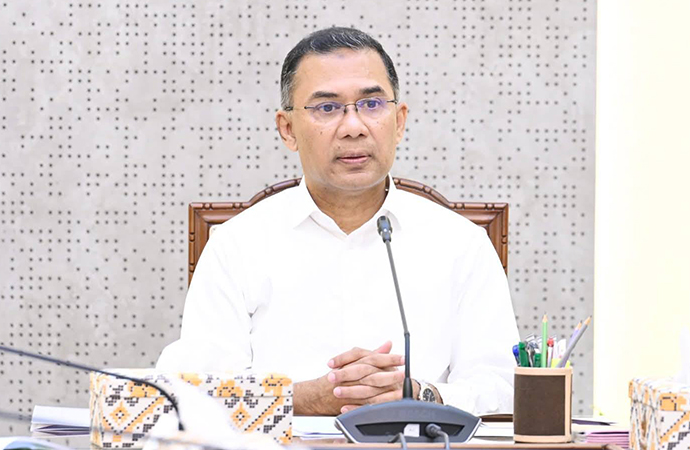
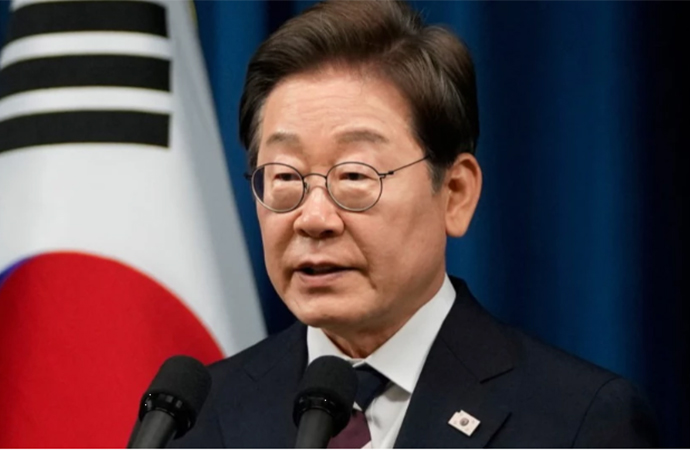
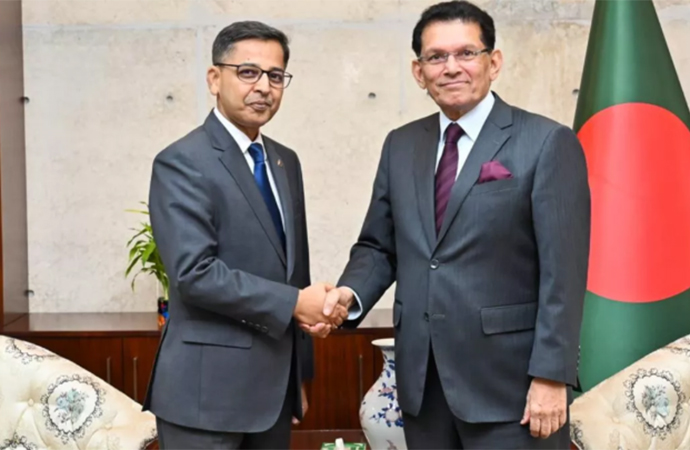
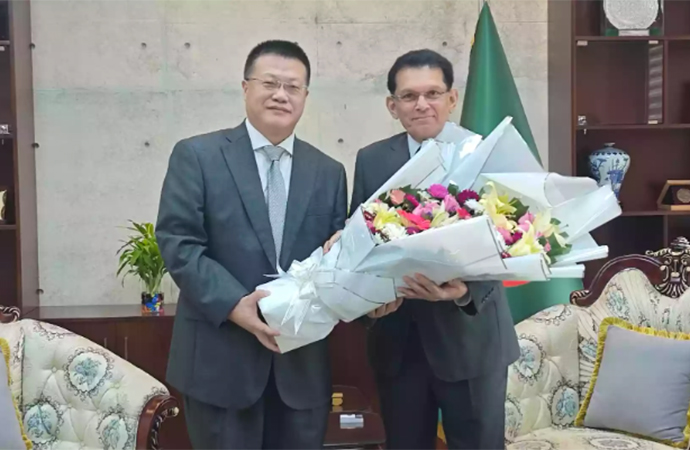
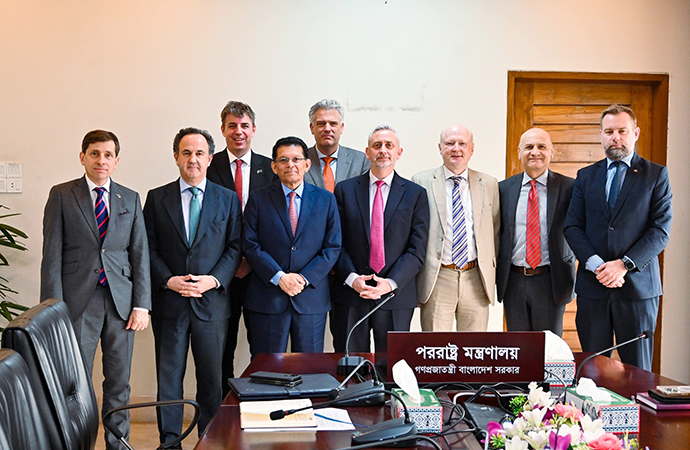
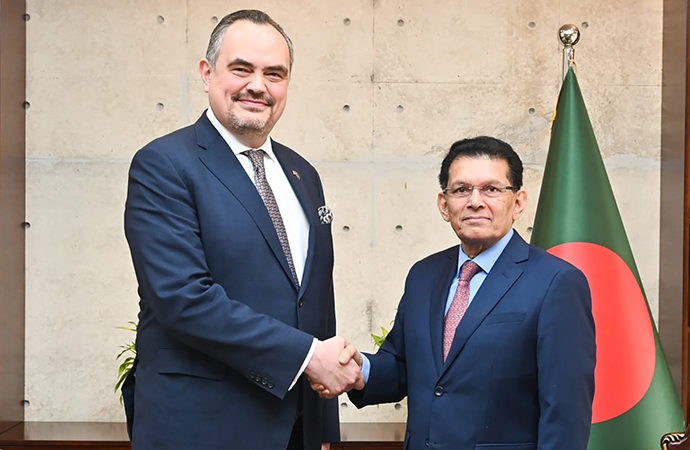













Leave a Comment
Recent Posts
Bangladesh’s first drought-res ...
In a groundbreaking development for Bangladesh’s agriculture, Ga ...
US and Iran hold another round ...
Iran and the United States were holding another round of indirect talk ...
An early hiccup for the new government?
Japan invites PM Tarique, eyes cooperation with Bang ..
Bangladesh to achieve sustained growth, prosperity u ..
Dhaka indicates ‘forward looking, balanced partnersh ..